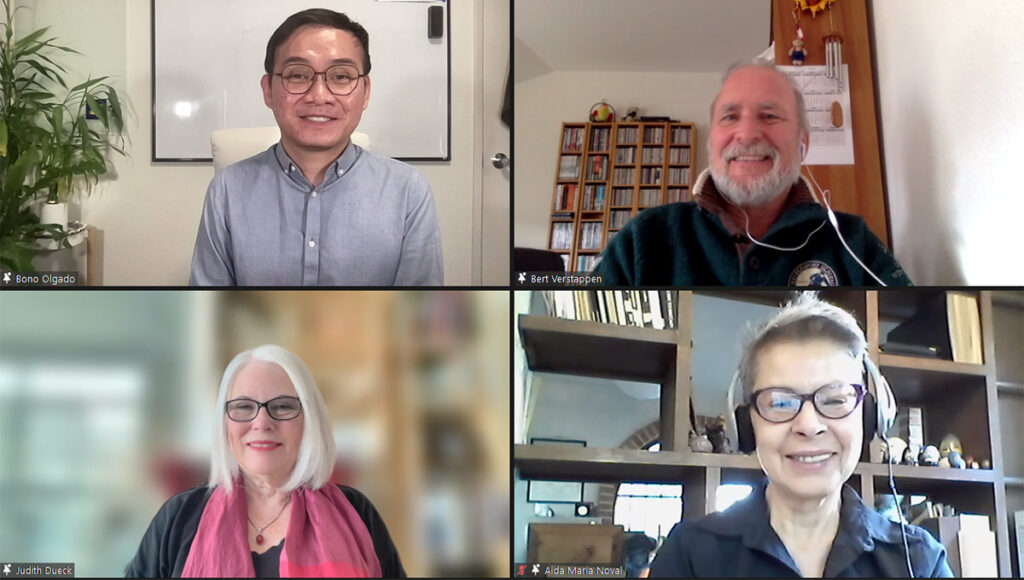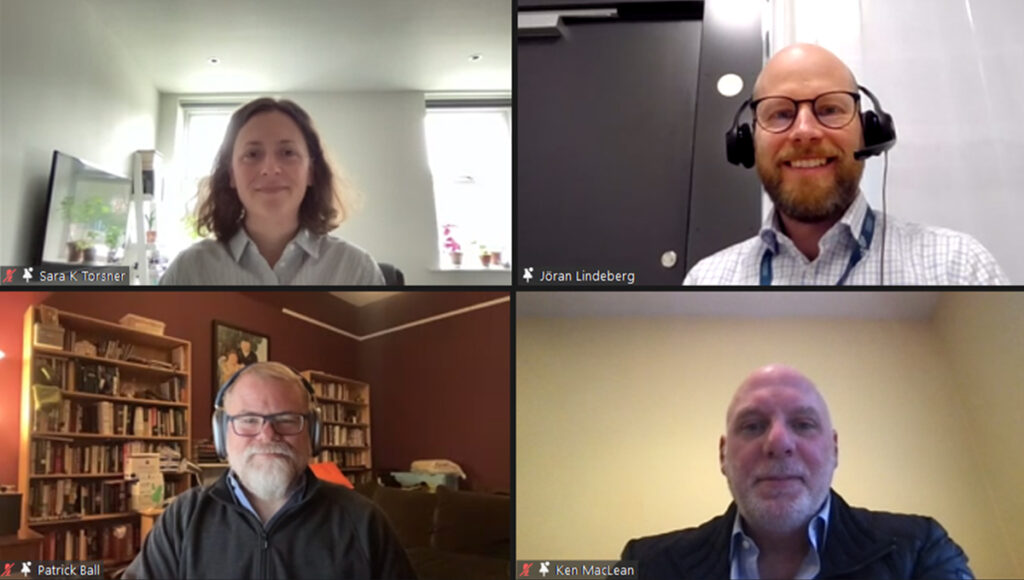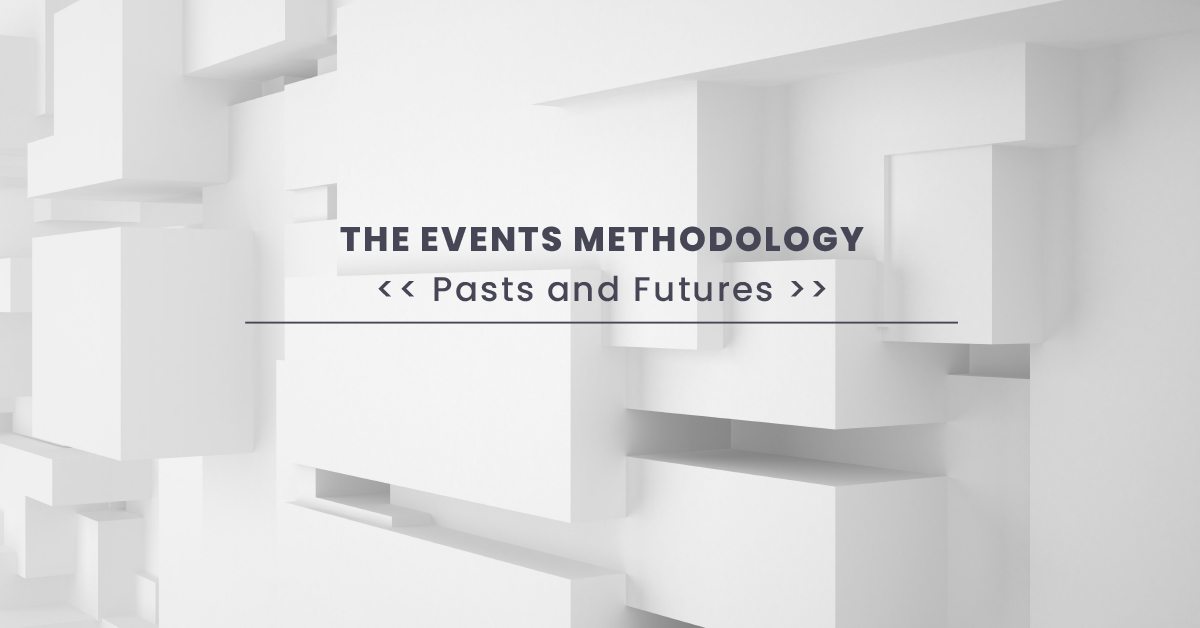As part of a series of roundtable discussions, HURIDOCS recently hosted two online events to reflect on the Events Methodology, its potential future directions and what lies ahead for human rights documentation.
Session 1
The Events Method: A Look Back
The first session was held on 27 March 2023 and reunited key members of the HURIDOCS Task Force on Events and co-authors of the Events Standard Formats (ESF).
Judith Dueck recounted the history and development of the methodology and standards, emphasising the importance of bringing together viewpoints from various contexts and disciplines.
Bert Verstappen recalled how the standards circulated and how they were initially perceived to be foreign and overwhelming. In response, he often reminded stakeholders that there are no quick and easy solutions to doing documentation work. Human rights documenters need to first look at their own situation and needs to be able to develop systems and approaches, and the standard formats can serve as a guide and menu from which they can select what is appropriate for them.
Aida Maria Noval, a user and trainer of the methodology, stated that the core of the events methodology is solid and that it continues to develop through the incorporation of new terms and knowledge. As the context changes, Noval reminds us that the methodology invariably evolves and adapts, even if the standards and their applications at times fail to do so.

Session 2
The Events Method: A Direction Forward
This notion of evolution, adoption, and adaptation became the focus of the second session, held on 28 March 2023, and featured various actors representing key fields that have utilised, engaged, critiqued, and/or written about the events methodology, standard formats, and microthesauri in recent years.
Patrick Ball recognised that the problems the standard formats and thesauri set out to solve, were well and truly solved. However, the problem of observing and describing various human rights realities for reliable, rigorous representation remains a key issue that the community needs to confront.
Ken MacLean problematised Patrick’s point further as he stressed that who counts what, how it gets counted, and what gets disclosed through human rights documentation are political acts and not just technical issues.
Attempting to address the need for organisations to be able to share data and prepare collective data sets for machine learning, Jöran Lindeberg shared his ongoing work in developing a shared ontology for the human rights space.
Finally, bringing all the threads together, Sara Torsner shared reflections on the ongoing work to develop an events-based methodology to strengthen human rights violations against journalists.

Bono Olgado, Documentalist at HURIDOCS, moderated both sessions. The two-part series showed that, 30 years since its first publication, the Events Standard Formats have directly and indirectly shaped human rights documentation initiatives across the globe, including the interrelated functions of documenting violations, creating archives, developing databases, and pursuing justice.
Given what we have learned in the past 30 years and the changing landscape of human rights, documentation, and technology, it is indeed an opportune time to revisit the events methodology and its iterations, particularly the standard formats and microthesauri, to explore their potential future directions, and more broadly, the future of human rights documentation.
The two-part series was hosted by HURIDOCS with the support from the Permanent Mission of Denmark to the UN in Geneva and the Däster Schild Stiftung.
